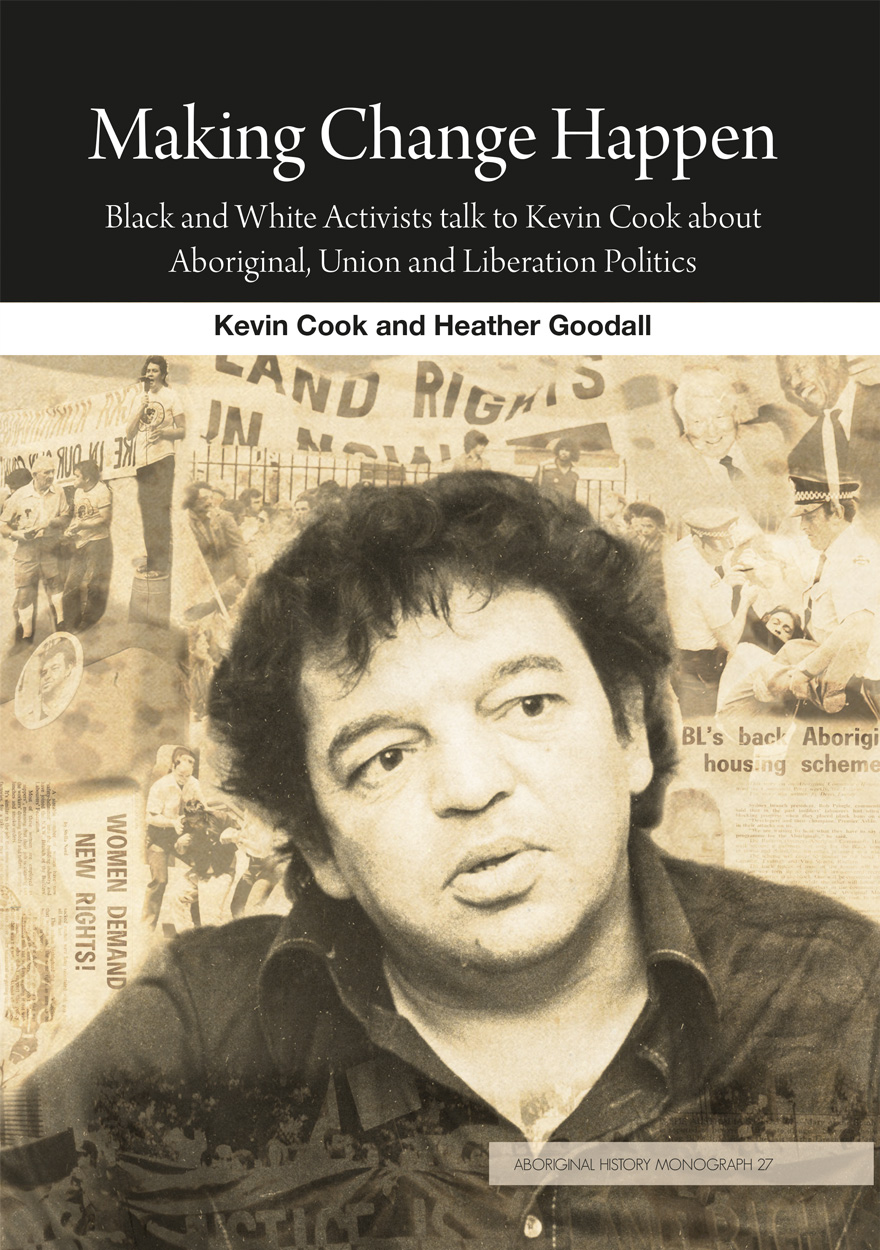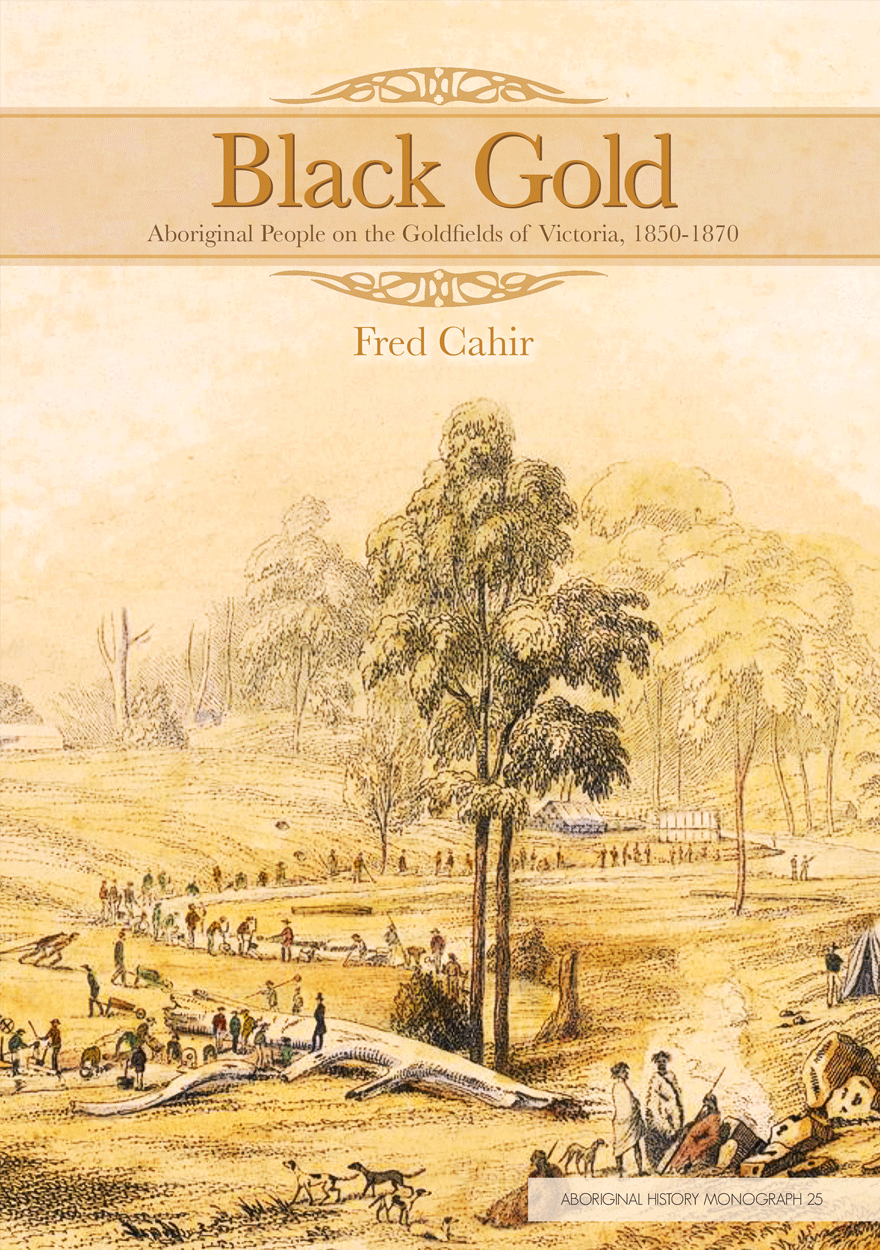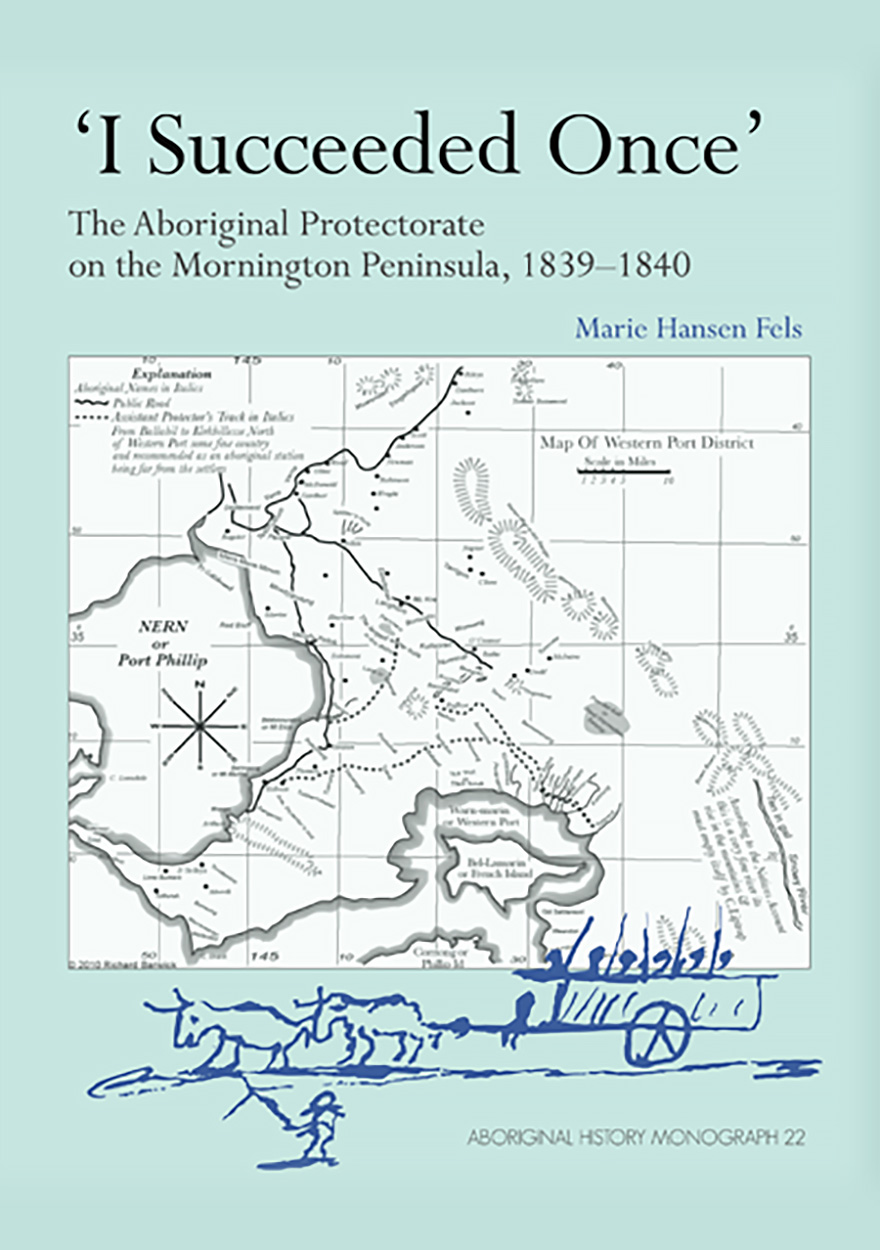Search titles
Displaying results 51 to 60 of 135.

Māori and Aboriginal Women in the Public Eye »
Representing Difference, 1950–2000
Authored by: Karen Fox
Publication date: December 2011
From 1950, increasing numbers of Aboriginal and Māori women became nationally or internationally renowned. Few reached the heights of international fame accorded Evonne Goolagong or Dame Kiri Te Kanawa, and few remained household names for any length of time. But their growing numbers and visibility reflected the dramatic social, cultural and political changes taking place in Australia and New Zealand in the second half of the twentieth century.
This book is the first in-depth study of media portrayals of well-known Indigenous women in Australia and New Zealand, including Goolagong, Te Kanawa, Oodgeroo Noonuccal and Dame Whina Cooper. The power of the media in shaping the lives of individuals and communities, for good or ill, is widely acknowledged. In these pages, Karen Fox examines an especially fascinating and revealing aspect of the media and its history — how prominent Māori and Aboriginal women were depicted for the readers of popular media in the past.

Making Change Happen »
Black and White Activists talk to Kevin Cook about Aboriginal, Union and Liberation Politics
Authored by: Kevin Cook, Heather Goodall
Publication date: September 2013
This book is a unique window into a dynamic time in the politics and history of Australia. The two decades from 1970 to the Bicentennial in 1988 saw the emergence of a new landscape in Australian Indigenous politics. There were struggles, triumphs and defeats around land rights, community control of organisations, national coalitions and the international movement for Indigenous rights. The changes of these years generated new roles for Aboriginal people. Leaders had to grapple with demands to be administrators and managers as well as spokespeople and lobbyists. The challenges were personal as well as organisational, with a central one being how to retain personal integrity in the highly politicised atmosphere of the ‘Aboriginal Industry’. Kevin Cook was in the middle of many of these changes – as a unionist, educator, land rights campaigner, cultural activist and advocate for liberation movements in Southern Africa, the Pacific and around the world. But ‘Cookie’ has not wanted to tell the story of his own life in these pages. Instead, with Heather Goodall, a long time friend, he has gathered together many of the activists with whom he worked to tell their stories of this important time. Readers are invited into the frank and vivid conversations Cookie had with forty-five black and white activists about what they wanted to achieve, the plans they made, and the risks they took to make change happen.
“You never doubted Kevin Cook. His very presence made you confident because the guiding hand is always there. Equal attention is given to all. I am one of many who worked with Cookie and Judy through the Tranby days and in particular the 1988 Bicentennial March for Freedom, Justice and Hope. What days they were. I’m glad this story is being told.”
— Linda Burney, MLA New South Wales
“Kevin Cook was a giant in the post-war struggle for Aboriginal rights. His ability to connect the dots and make things happen was important in both the political and cultural resurgence of the 1970s onwards.”
— Meredith Burgmann, former MLC, New South Wales
“Kevin has had a transformative effect on the direction of my life and the lives of so many other people. This book is an important contribution to understanding not only Kevin’s life but also the broader struggles for social and economic justice, for community empowerment and of the cooperative progressive movement. It will greatly assist the ongoing campaign for full and sustainable reconciliation.”
— Paddy Crumlin, National Secretary, Maritime Union of Australia
“Cookie has made great contributions in enhancing the struggles of our people. He is a motivator, an astute strategist, and an excellent communicator with wonderful people skills. It’s a pleasure to be able to call him a mate and a brother.”
— John Ah Kit, former MLA, Northern Territory
For more information on Aboriginal History Inc. please visit aboriginalhistory.org.au.

Black Gold »
Aboriginal People on the Goldfields of Victoria, 1850-1870
Authored by: Fred Cahir
Publication date: September 2012
Fred Cahir tells the story about the magnitude of Aboriginal involvement on the Victorian goldfields in the middle of the nineteenth century.
The first history of Aboriginal–white interaction on the Victorian goldfields, Black Gold offers new insights on one of the great epochs in Australian and world history—the gold story.
In vivid detail it describes how Aboriginal people often figured significantly in the search for gold and documents the devastating social impact of gold mining on Victorian Aboriginal communities. It reveals the complexity of their involvement from passive presence, to active discovery, to shunning the goldfields.
This detailed examination of Aboriginal people on the goldfields of Victoria provides striking evidence which demonstrates that Aboriginal people participated in gold mining and interacted with non-Aboriginal people in a range of hitherto neglected ways.
Running through this book are themes of Aboriginal empowerment, identity, integration, resistance, social disruption and communication.
For more information on Aboriginal History Inc. please visit aboriginalhistory.org.au.

Power and Dysfunction »
The New South Wales Board for the Protection of Aborigines 1883–1940
Authored by: Richard Egan
Publication date: October 2021
In 1883, the New South Wales Board for the Protection of Aborigines was tasked with assisting and supporting an Aboriginal population that had been devastated by a brutal dispossession. It began its tenure with little government direction – its initial approach was cautious and reactionary. However, by the turn of the century this Board, driven by some forceful individuals, was squarely focused on a legislative agenda that sought policies to control, segregate and expel Aboriginal people. Over time it acquired extraordinary powers to control Aboriginal movement, remove children from their communities and send them into domestic service, collect wages and hold them in trust, withhold rations, expel individuals from stations and reserves, authorise medical inspections, and prevent any Aboriginal person from leaving the state.
Power and Dysfunction explores this Board and uncovers who were the major drivers of these policies, who were its most influential people, and how this body came to wield so much power. Paradoxically, despite its considerable influence, through its bravado, structural dysfunction, flawed policies and general indifference, it failed to manage core aspects of Aboriginal policy. In the 1930s, when the Board was finally challenged by Aboriginal and non-Aboriginal groups seeking its abolition, it had become moribund, paranoid and secretive as it railed against all detractors.
When it was finally disbanded in 1940, its 57-year legacy had touched every Aboriginal community in New South Wales with lasting consequences that still resonate today.

Dharmalan Dana »
An Australian Aboriginal man’s 73-year search for the story of his Aboriginal and Indian ancestors
Authored by: George Nelson, Robynne Nelson
Publication date: April 2014
A Yorta Yorta man’s 73-year search for the story of his Aboriginal and Indian ancestors including his Indian Grampa who, as a real mystery man, came to Yorta Yorta country in Australia, from Mauritius, in 1881 and went on to leave an incredible legacy for Aboriginal Australia. This story is written through George Nelson’s eyes, life and experiences, from the time of his earliest memory, to his marriage to his sweetheart Brenda, through to his journey to Mauritius at the age of 73, to the production of this wonderful story in the present.
For more information on Aboriginal History Inc. please visit aboriginalhistory.org.au.

'I Succeeded Once' »
The Aboriginal Protectorate on the Mornington Peninsula, 1839–1840
Authored by: Marie Hansen Fels
Publication date: May 2011
In ‘I Succeeded Once’ – The Aboriginal Protectorate on the Mornington Peninsula, 1839-1840, Marie Fels makes the work of William Thomas accessible to anthropologists, archaeologists, historians and the descendants of the Aboriginal people he wrote about. More importantly, people who live, work, study, holiday or just have a general interest in the area from Melbourne to Point Nepean can learn about the original inhabitants who walked the land before it was cleared for agriculture and urban development. Of course, development of the Mornington Peninsula is ongoing and this book will help those involved in development or the management of Aboriginal cultural heritage to identify, document and protect Aboriginal places that may not be identifiable through archaeological investigations alone. Marie Fels supplements Thomas’s writings with other contemporary accounts and her exhaustive historical research sheds new light on critical events and the significant places of the Boon Wurrung people. Of particular importance is the critical review of information about the kidnapping of Boon Wurrung people from the Mornington Peninsula.
Winner of the Best Community Research, Register, Records at the Community History Awards by the Royal Historical Society of Victoria and the Public Record Office of Victoria in 2011.
For more information on Aboriginal History Inc. please visit aboriginalhistory.org.au.

Racial Folly »
A Twentieth-Century Aboriginal Family
Authored by: Gordon Briscoe
Publication date: February 2010
Briscoe’s grandmother remembered stories about the first white men coming to the Northern Territory. This extraordinary memoir shows us the history of an Aboriginal family who lived under the race laws, practices and policies of Australia in the twentieth century. It tells the story of a people trapped in ideological folly spawned to solve ‘the half-caste problem’. It gives life to those generations of Aboriginal people assumed to have no history and whose past labels them only as shadowy figures.
Briscoe’s enthralling narrative combines his, and his contemporaries, institutional and family life with a high-level career at the heart of the Aboriginal political movement at its most dynamic time. It also documents the road he travelled as a seventeen year old fireman on the South Australia Railways to becoming the first Aboriginal person to achieve a PhD in history.
For more information on Aboriginal History Inc. please visit aboriginalhistory.org.au.

Settler Colonial Governance in Nineteenth-Century Victoria »
Edited by: Leigh Boucher, Lynette Russell
Publication date: April 2015
This collection represents a serious re-examination of existing work on the Aboriginal history of nineteenth-century Victoria, deploying the insights of postcolonial thought to wrench open the inner workings of territorial expropriation and its historically tenacious variability. Colonial historians have frequently asserted that the management and control of Aboriginal people in colonial Victoria was historically exceptional; by the end of the century, colonies across mainland Australia looked to Victoria as a ‘model’ for how to manage the problem of Aboriginal survival. This collection carefully traces the emergence and enactment of this ‘model’ in the years after colonial separation, the idiosyncrasies of its application and the impact it had on Aboriginal lives.
It is no exaggeration to say that the work on colonial Victoria represented here is in the vanguard of what we might see as a ‘new Australian colonial history’. This is a quite distinctive development shaped by the aftermath of the history wars within Australia and through engagement with the ‘new imperial history’ of Britain and its empire. It is characterised by an awareness of colonial Australia’s positioning within broader imperial circuits through which key personnel, ideas and practices flowed, and also by ‘local’ settler society’s impact upon, and entanglements with, Aboriginal Australia. The volume heralds a new, spatially aware, movement within Australian history writing. – Alan Lester
This is a timely, astutely assembled and well nuanced collection that combines theoretical sophistication with empirical solidity. Theoretically, it engages knowledgeably but not uncritically with a broad range of influences, including postcolonialism, the new imperial history, settler colonial studies and critical Indigenous studies. Empirically, contributors have trawled an impressive array of archival sources, both standard and relatively unknown, bringing a fresh eye to bear on what we thought we knew but would now benefit from reconsidering. Though the collection wears its politics openly, it does so lightly and without jeopardising fidelity to its sources. – Patrick Wolfe
For more information on Aboriginal History Inc. please visit aboriginalhistory.org.au.

The Bible in Buffalo Country »
Oenpelli Mission 1925–1931
Publication date: October 2020
Arriving in the remote Arnhem Land Aboriginal settlement of Oenpelli (Gunbalanya) in 1925, Alf and Mary Dyer aimed to bring Christ to a former buffalo shooting camp and an Aboriginal population many whites considered difficult to control. The Bible in Buffalo Country: Oenpelli Mission 1925–1931 represents a snapshot of the tumultuous first six years of the Church Missionary Society’s mission at Oenpelli and the superintendency of Alfred Dyer between 1925 and 1931. Drawing together documentary and photographic sources with local community memory, a story emerges of miscommunication, sickness, constant logistical issues, and an Aboriginal community choosing when and how to engage with the newcomers to their land.
This book provides a fascinating and detailed record of the primary sources of the mission, placed alongside the interpretation and insight of local Traditional Owners. Its contents include the historical and archaeological context of the primary source material, the vivid mission reports and correspondence, along with stunning photographs of the mission and relevant maps, and finally the oral history of Esther Manakgu, presenting Aboriginal memory of this complex era.
The Bible in Buffalo Country emerged from community desire for access to the source documents of their own history and for their story to be known by the broader Australian public. It is intended for the benefit of communities in western Arnhem Land and is also a rich resource for historians of Aboriginal history (and other scholars in relevant disciplines).

Reluctant Representatives »
Blackfella bureaucrats speak in Australia’s north
Authored by: Elizabeth Ganter
Publication date: November 2016
‘How can you make decisions about Aboriginal people when you can’t even talk to the people you’ve got here that are blackfellas?’ So ‘Sarah’, a senior Aboriginal public servant, imagines a conversation with the Northern Territory Public Service. Her question suggests tensions for Aboriginal and Torres Strait Islanders who have accepted the long-standing invitation to join the ranks of the public service.
Reluctant Representatives gives us a rare glimpse into the working world of the individuals behind the Indigenous public sector employment statistics. This empathetic exposé of the challenges of representative bureaucracy draws on interviews with Aboriginal and Torres Strait Islander Australians who have tried making it work. Through Ganter’s engaging narration, we learn that the mere presence of Aboriginal and Torres Strait Islanders in the public service is not enough. If bureaucracies are to represent the communities they serve, Aboriginal and Torres Strait Islander public servants need to be heard and need to know their people are heard.



